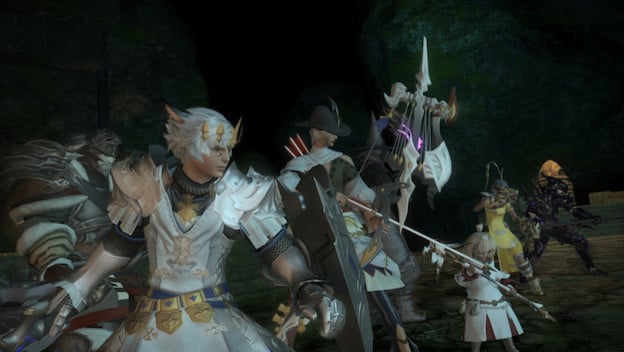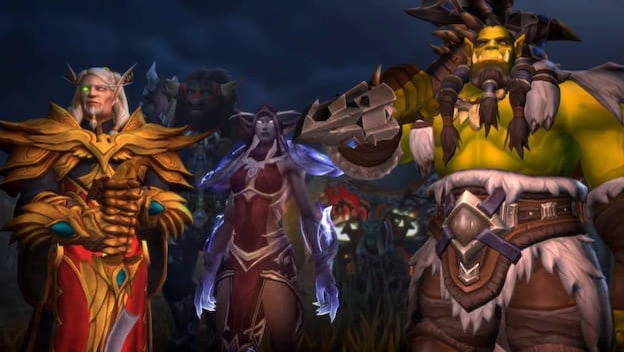Massively Multiplayer Online Roleplaying Games are extraordinarily common these days. Unfortunately, it is also the genre that is pointed to most commonly when people tell stories of video game addiction. Whether in fiction or media, it is MMO players who end up depicted in an unflattering light. But why is that? Is there something that makes something uniquely addictive? I think, largely, the answer is “no,” because a lot of what made the genre standout has bled over into other genres. But there is still a compelling and potent mixture that can put players on a hook.
The games are almost immediately addictive. The players start off feeling like small forces in a large world, and they set out to overcome its challenges. In order to do so, they make a lot of important choices. What archetype or class will they control? What weapons will they wield? Where will they start? From the earliest moments, a lot of these games make you feel invested because there’s a sense of control over the world. There’s a sense that you’re defining the experience in a way that matters.
It is easy to see how these early experiences empower the player and give them a sense of progress. This is intentional. The rewards for work come fast at first. The earliest “level ups” are close together. The beginning quests are completed quickly. These are often accompanied by musical and visual fanfare. Gacha games, and microtransaction-fueled mobile games frontload success in a similar way. It’s very intentional design.
An obvious draw to MMORPGs is the titular “multiplayer” component. The worlds feel lived in and there’s a sense of community. You can make friends, adventure with strangers, and share tales of victory and defeat. Some games incentivize community more than others but, for a lot of MMOs, the people you play with help shape your experience. Some people establish “found families” in these games. I have a lot of important people in my life that I met 17 years ago playing Final Fantasy XI . I watch others lean on their online support systems in other games, especially with quarantine in full effect. Sure, it may not be fair to call people an addictive element of MMORPGs, but it’s the game that they share that gives them an excuse to get together daily or weekly. And it’s part of what makes the fear of quitting so immense.

Actually, fear of losing or impeding progress is a pretty big presence in MMORPGs. A lot of games have daily incentives for logging on, which can be habit forming. Missing those incentives means the player will have to work harder to stay on track with their community in terms of progress. Hard earned rewards are also quickly antiquated in some titles. This is sometimes called the “gear treadmill,” and refers to the never-ending quest for the best gear which, in a way, amounts to chasing a carrot on a stick. Some games, like Final Fantasy XIV , will take away progress if you don’t maintain a subscription. This is likely a very niche example, but in-game housing is an exciting achievement that is hard to come by. Unfortunately, 45 days of inactivity will result in the demolition of your virtual house, the loss of your estate, and the eventual loss of the furnishings and items stored within. When you put in work, it is hard to see it destroyed.
And, in some ways, MMORPGs feel like work. You put in effort for gains. And, because you put in effort, it’s hard to step away from it all. The investment made will feel like a waste, or that it was all for nothing, if you don’t continue to play. This is part of something called the sunk cost fallacy. Some might even continue to play long after they’ve stopped having fun.
For most, MMORPGs aren’t something to fear. But they do offer a sense of control. They foster a feeling of progress. They connect players to a community. They reward invested time. And, in some ways, supplement emotional and psychological needs. It is easy to see how they’re enjoyable but it is also easy to see how they are addictive. As with most things, it’s important to monitor your own behavior and also be aware of the risks that may be present.
